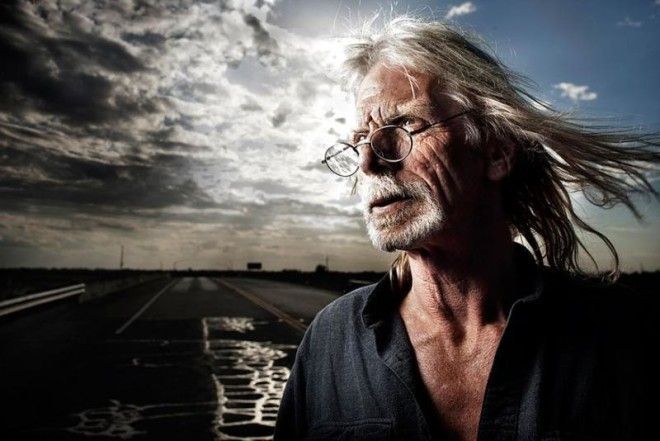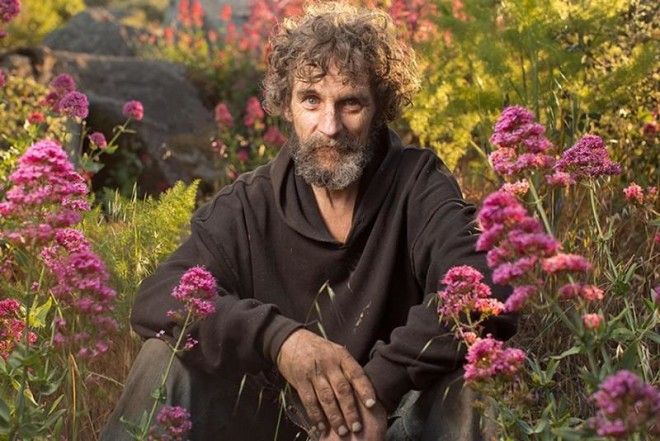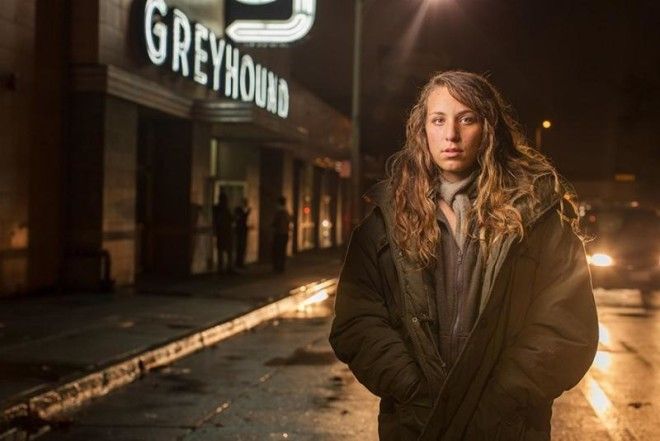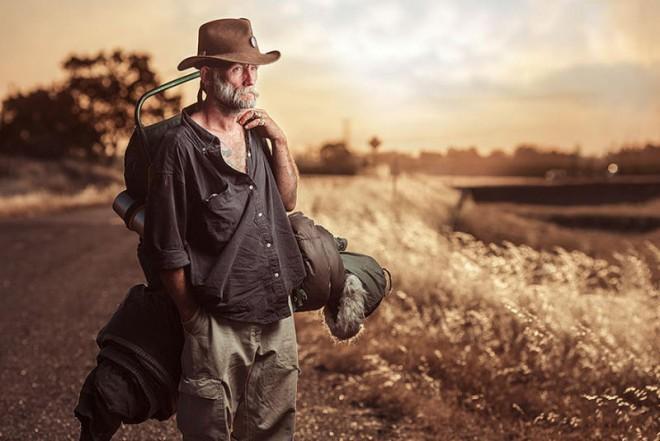In his series titled Underexposed, Draper captures breathtaking photographs of California’s homeless using specific lighting techniques. He believes it is the responsibility of artists to use their gifts to be the inspiration for change, and to point out social issues in need of a different perspective. “I use lighting as a way to interest the viewer in the subjects shown,” Draper says. “I hope to enable people to gain a more humane view of the homeless.”
Although Draper has been a professional photographer for more than 15 years, he still finds new sparks of motivation for his creative passions. He spent several years as a writer for newspapers, which helped solidify his storytelling expertise. His stories are now told through his captivating photographs.

I was lucky enough to ask Draper a few questions about his work:
Raven: Everyone has a preface to their story- something that caused a spark in their brain or a quake in their heart to drive them to where they are today. What was the spark or the quake that made you want to create “Underexposed”?
Draper: The Underexposed project came about after I’d spent several hours editing and removing every wrinkle from a client’s face. I left the studio that day with my camera in hand and was hungry to photograph something different. I’d been photographing portrait clients for 11 or so years and doing my best to make them look good.
As I drove around town I kept noticing homeless people in various parts of Modesto. As I slowed to observed them I noticed that their faces were full of texture from years of street experience. Their clothes were torn and their hands were weathered. I was struck at what beautiful portraits they’d make and how the lines on their faces revealed the lives they’d lived. It was a stark contrast to the smooth, featureless faces that were popular for professional portraits.
I pulled over and stopped and talked to a man named Leon. As we spoke, he revealed that he was originally from Louisiana and had once owned a shrimping boat. His eyes shone as he dove into great detail about the various recipes that he’d used to prepare. When he asked what I did, I told him that I was a photographer. He response was, “You can photograph me.” And I did. And his portrait revealed a smiling man hanging over a cyclone fence with a blue sky behind him. He didn’t ask for any money, but it felt right to give him something for his time. As I drove away from Leon that evening, I was moved by the fact that he was an interesting human being with a story that I would never have associated with a homeless person. Questions swirled in my head and those questions were replaced with actions. If I was curious about their stories, I was sure that others would be too. Once I posted Leon’s image on Facebook, the public’s response reinforced the feeling I had to start a personal project of homeless and their stories.

Raven: On your website, you mention you enjoy traveling abroad. Do you find that your perspective as a photographer helps you to appreciate the world around you more than some?
Draper: I do feel that as a photographer I look at things and see things a little differently than the average traveler. But I think that more than my photography affecting my travel, that my travel has affected how I view photography. I believe travel is a spiritual experience. It changes you in ways that you can’t even comprehend. It opens your heart. It helps you have an empathy for peoples and cultures that don’t do things exactly like you do. It’s a life changing and soul changing experience that will affect all aspects of your life.

Raven: Finally, do you have any creative ideas floating around for your next project?
Draper: Underexposed will be a project that I continue with for as long as homelessness exists. I do have another project that I’ll begin working on this next year. I have a soft spot for humanity. Here in the U.S. many of us are very vocal about the need for cleaner air. Because I’m an advocate for this issue, I thought it would be important to see the human side of this. I’ll be interviewing and photographing portraits of coal miners and the towns whose main source of income is derived from coal. Once the coal mines are shut down, these people, whose families have mined for generations, have no other means to sustain themselves. There is little economic mobility for some of these towns.

